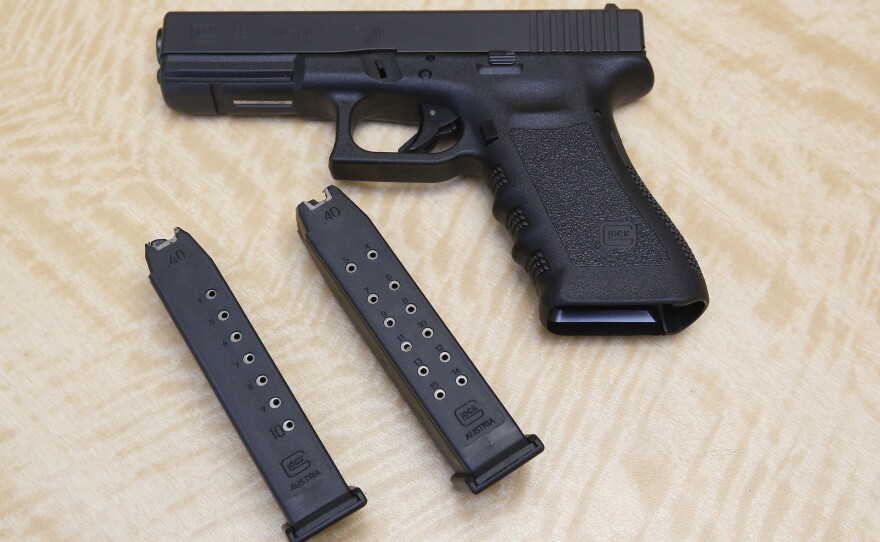Ten San Diego gun owners have been ordered to surrender their firearms after courts determined they were at risk of harming themselves or others as part of an effort launched in January by the City Attorney's Office to obtain such restraining orders.
A state law that took effect in 2016 allows police or family members of gun owners who show signs of wanting to cause harm to request a court order that can prohibit the person from possessing or buying a gun or ammunition and require they turn in their guns and ammunition to the police or sell them to a licensed dealer.
California's gun violence restraining orders are among laws in a handful of states that gun violence prevention advocates say could have been used to stop this week's killing of 17 people at a high school in Parkland, Florida.
The admitted killer, Nikolas Cruz, 19, was expelled from that high school last year after being accused of bringing knives to school and posting on social media about wanting to be a "professional school shooter." The family with whom Cruz lived knew he owned a gun and noticed signs that he was depressed.
The FBI was aware of his online behavior, which also included Instagram posts of him brandishing weapons, according to media reports.
RELATED: FBI Received A Tip Last Month About Florida Shooting Suspect — But Nothing Was Done
City Attorney Mara Elliott at the beginning of the year launched a policy in collaboration with the police department of seeking gun restraining orders against those who present "serious risk of harm."
Among those ordered to surrender their weapons are a 23-year-old former Marine who developed paranoia and walked into an auto parts store with a loaded handgun but called police before shooting anyone; a 60-year-old man who grabbed a gun and fled his home after family members said they discovered he was molesting his grandchild; and a 35-year-old man with a "small arsenal" and a history of domestic violence against his wife, according to Elliott's office.
The orders last for 12 months, during which time those subjected to the orders may seek counseling and treatment for their problems. Courts can authorize an extension of the orders if deemed appropriate.
"Our federal government is inexcusably ignoring the growing problem of gun violence in our schools and communities. The city of San Diego will not tolerate federal inaction," Elliott said. "We're doing everything in our power to respond to this epidemic of senseless killing by removing guns from the hands of unstable and irresponsible gun owners."
The National Rifle Association has opposed legislation to enact laws like this one and similar ones in Washington, Connecticut and Indiana, due to what it says is the potential for the orders to be abused and the restriction of Second Amendment Rights.
The NRA, the Firearms Policy Coalition and San Diego County Gun Owners did not immediately respond to requests for comment.
Wendy Wheatcroft, who leads the San Diego chapter of anti-gun-violence group Moms Demand Action, said Elliott's policy takes a major step toward preventing shootings.
"We fully support Mara's efforts," she said. "If a law like this had been in place in Florida, they would have been able to do something (to prevent the shooting), I think."
Several experts agreed with Wheatcroft in media reports published after the shooting.
On the national level, she said Congress should enact a policy of expanded background checks for those wishing to purchase guns.





